Subscribe to the Newsletter
Your cart is empty
Shop now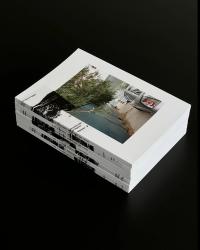
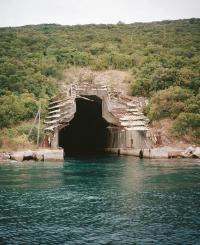
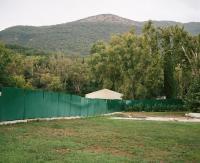
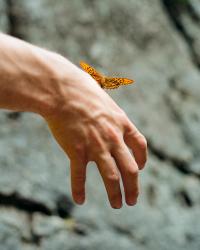
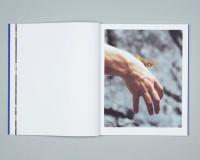
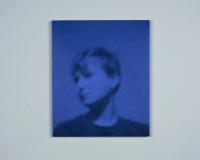
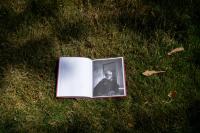
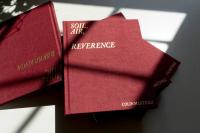
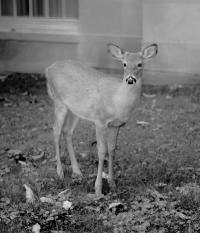
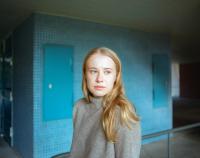
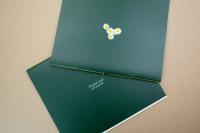
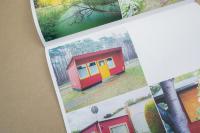












In Focus: Photobooks by Colin Martinez, Zara Pfeifer, Benedetta Ristori and Vincent Forstenlechner
The latest finds from our community artists’ photobooks
“In Focus” is a quarterly series of reviews in which we hunt down and peruse the worthy publications off the shelves of our community artists. Each month, Der Greif is selecting a set of photobooks from our talents’ pool. Compiled here are the most recent releases from our community artists Colin Martinez, Zara Pfeifer, Benedetta Ristori and Vincent Forstenlechner.
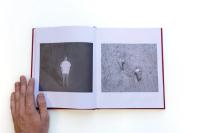

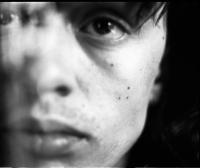
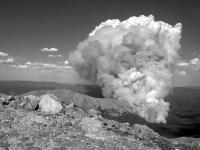
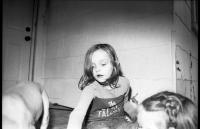





“Soil, Air, Reverence” is Colin Martinez’s first published volume of photographs. Through a series of short, poem-like notes, Martinez constructs a narrative spanning half a decade of cross-country travel. Rather than pulling the reader into sweeping landscapes, Martinez focuses on the idiosyncratic and often overlooked details of the land and its people. The soft, black-and-white images in this volume capture small, understated vignettes – moments of quiet observation that, when connected, reveal an aching specificity to the places they depict. In the book’s opening note, Martinez writes: "All around the country, hidden in bathrooms, on trees and under tables, trapped in cars and in basements, blossoming on corners and in motel rooms, life bubbles and protrudes. / Born in a sinister land, on ground that, not unlike its desperate vegetative creation, dries and splits and cracks. / Born of a love that scratches itself to the surface – one that seeps out of tight containers and into brain and veins and hearts." Through this intimate lens, the book becomes a meditation on movement, memory, and the quiet persistence of life across the American landscape.
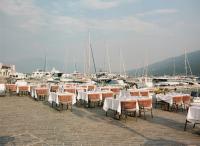
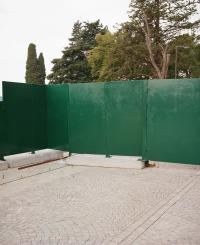
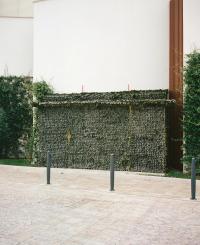
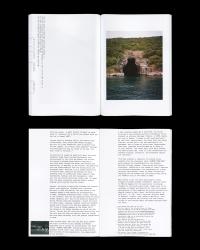
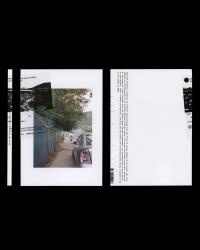





“Close to Portonovi” is a collaborative photobook by artist Zara Pfeifer’s and architect and researcher Antonia Dika. This book brings together a selection of comments from the online forum discussion “KUMBOR 1986/1987,” where former conscripts reflect on the transformation of the Orjenski Bataljon military complex. Their words, recalling memories of their barracks and its evolution into Portonovi Montenegro, are juxtaposed with a photo series by Zara Pfeifer. Taken during a research trip in the summer of 2022, Pfeifer’s images capture the new complex and its surrounding areas in Kumbor and Đenovići, offering a visual counterpoint to the forum’s collective nostalgia and shifting landscapes. Pfeifer’s images capture the evolving landscape with a keen eye for detail, juxtaposing traces of the site’s military past with the glossy surfaces of its present incarnation. Her documentary approach conveys both the stark contrasts and subtle continuities between these two realities. Dika’s contributions provide a critical framework, situating the transformation within broader discourses of urban development, privatization, and gentrification in post-socialist spaces. The photobook does not simply document change – it invites reflection on what is gained and lost in the process. The combination of visual storytelling and analytical insight makes "Close to Portonovi" a compelling study of place, memory, and the forces that shape contemporary urban landscapes.
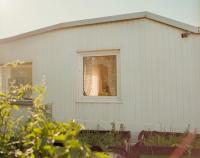

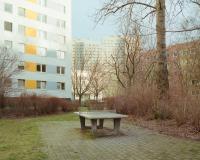





In “You Don’t Need Soil to Grow,” Benedetta Ristori presents a deeply thoughtful exploration of identity, belonging, and resilience in transient urban spaces. Through a compelling interplay of portraiture and landscape photography, the book offers an intimate look at expatriate women navigating their sense of self within the rigid structures of a city that is not inherently their own. The tension between their newfound freedom and fleeting connection to place is palpable, making each image a quiet meditation on movement, reinvention, and solitude. What sets Ristori’s work apart is her ability to weave these personal narratives with a broader spatial commentary. The inclusion of Berlin’s Kleingärten – communal allotment gardens scattered throughout the city – adds a fascinating counterpoint. These small green refuges stand in stark contrast to the impermanence of urban life, symbolizing an alternative mode of belonging through cultivation and rootedness.

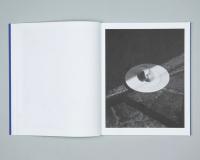

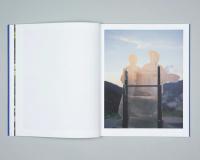
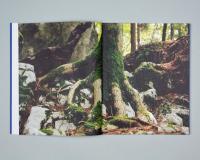





Vincent Forstenlechner’s “ROYGBYV” is a poetic meditation on memory, identity, and the shifting nature of place. The title, referencing the colors of the rainbow, hints at the fleeting and subjective nature of perception – just as our relationship with home and memory evolves over time. Spanning 2016-2022, the book documents Forstenlechner’s return to his homeland in Austria, capturing landscapes and personal spaces that oscillate between familiarity and transformation. Through a mix of color and black-and-white photography, he reflects on how places change, subtly reshaping personal history. Designed with Studio Fjeld, “ROYGBIV” balances intimacy and distance, allowing images to breathe while creating a cohesive narrative. Lina Morawetz’s accompanying text enriches the work, grounding its themes of nostalgia and impermanence. Forstenlechner’s work lingers, making this photobook essential for those drawn to themes of homecoming and change. A beautifully understated yet evocative collection, “ROYGBIV” invites viewers to reflect on their own evolving relationships with place and time.